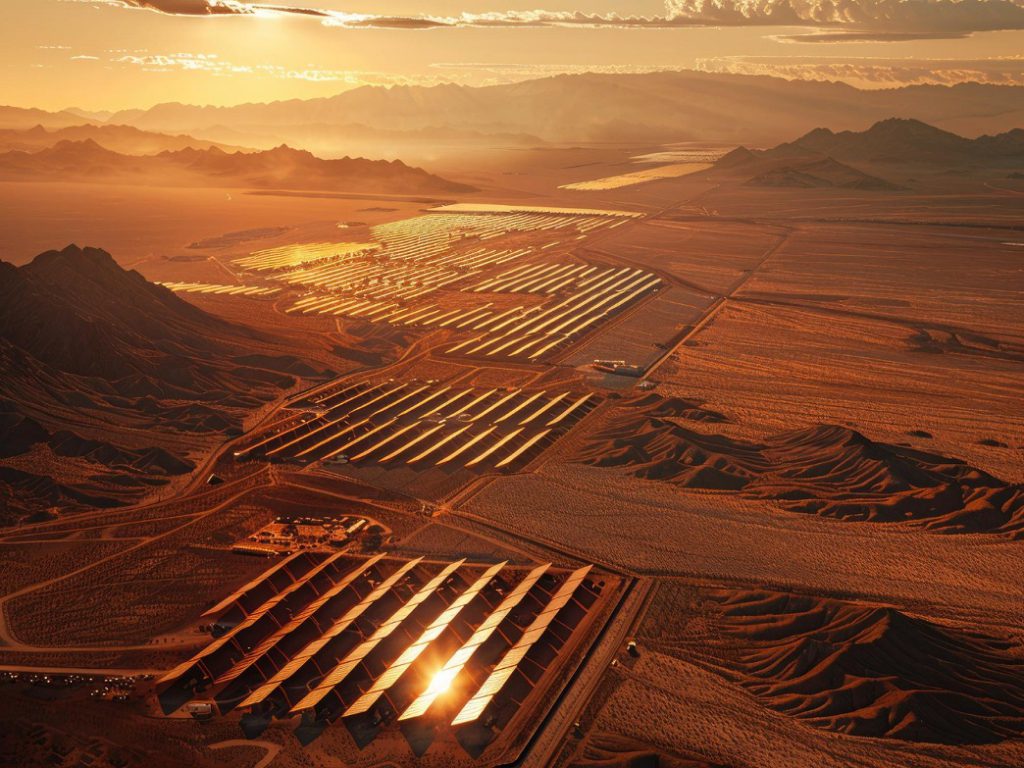Solar for a Sunburnt Country: Tough panels for a tough climate
September 18th, 2024
The land down under is blessed with one of the best solar resources in the world, and for that reason it is almost criminal to waste it. On the other hand, all of that sunlight certainly makes for hot weather during much of the year. And yet blistering heat is only part of the climate story: Australian is a vast land of extremes, from the sweltering temperatures of Marble Bar in our glorious West, to the snow topped mountains of Tasmania and the Australian Alps. If that wasn’t enough, mother nature has provided the sunburnt country with an ample serving of cyclones and hail.

All of this volatility means any equipment installed in the elements needs to be put to the test, and solar panels are no exception.
Let us get straight to the point: the unique back contact technology in Aiko Solar’s is better at handling these tough Australian conditions than older PERC and basic TopCon solar panels.
There are five ways that Aiko Solar ABC technology contained within the NEOSTAR range of panels excels in Australia’s tough conditions:
- Excellent performance in independent testing of damp-heat cycling
- Holds up best in the heat – excellent temperature coefficient
- Maintains low temperature for cells in shade
- Resists impact stress better than other panels
- Exceptional Hail Test performance
Independent Torture Tests
AIKO sends panels yearly to independent climate testing by Kiwa, including Damp Heat cycling of 2000 hours, being double the duration of the standard IEC certification tests. Aiko is a recognised top performer in these PVEL tests, which are designed to simulate high temperatures and high humidity conditions. NEOSTAR panels from AIKO are verified ready for Australia’s humid and hot conditions, which is why installers from Perth to Townsville are already installing AIKO’s advanced back contact panels.
Industry Leading Temperature coefficient
The performance of most electronics is impacted by heat, and solar is no exception, with all brands experiencing a slight drop in voltage as they heat up. So which type of solar panels perform well in the heat? The answer is that the ABC based panels from AIKO drop off less than older PERC and pure TopCon based panels. In the solar industry, we use the temperature coefficient of power to describe how panels perform under hot conditions, the lower the number the better. AIKO NEOSTAR panels in 2024 have a coefficient of -0.26%/℃, compared to typical numbers of -0.35%/℃ for PERC and basic TopCon at -0.29%/℃, which means the drop off of output in hot conditions is reduced by selecting ABC. This benefit pays dividends year after year, so small improvements add up over time.
Shade Management Delivers lower maximum cell temperatures
ABC technology brings with it clever management of shading. In older types of solar panels, solar cells that get shaded will possibly experience higher temperatures up to 150℃. AIKO panels with ABC technology feature high temperature suppression technology, independently certified by a TÜV NORD Hot Spot Resistance Test Report, to limit overheating of the module. Shaded cells don’t get hotter than 100 ℃ on these advanced PV modules. And a cool system is a safe system.
Retained power after impact stress
AIKO believes in not just tested the finished panels, but also testing the parts before they are assembled into panels. When loose solar cells prior to assembly in panels are subject to the severe stress of the 2kg / 15-point stress test, the electrical loss of ABC panels is approximately 1/3 of legacy cell types like PERC and basic TopCon.
Exceptional Performance in Hail Tests AIKO’s advanced N-Type ABC solar panels are the only panels on the Australian market to have passed the Swiss Hail VKF HW4 certification, as conducted independently by TUV Rheinland. As part of the process, AIKO’s high-efficiency ABC modules have been tested against 40mm iceballs in simulation of hailstones— notably larger than the 25mm hailstones required by the basic standards of solar safety. This intense testing ensures AIKO NEOSTAR solar modules can withstand common hail types found in Australia, that may damage standard panels.